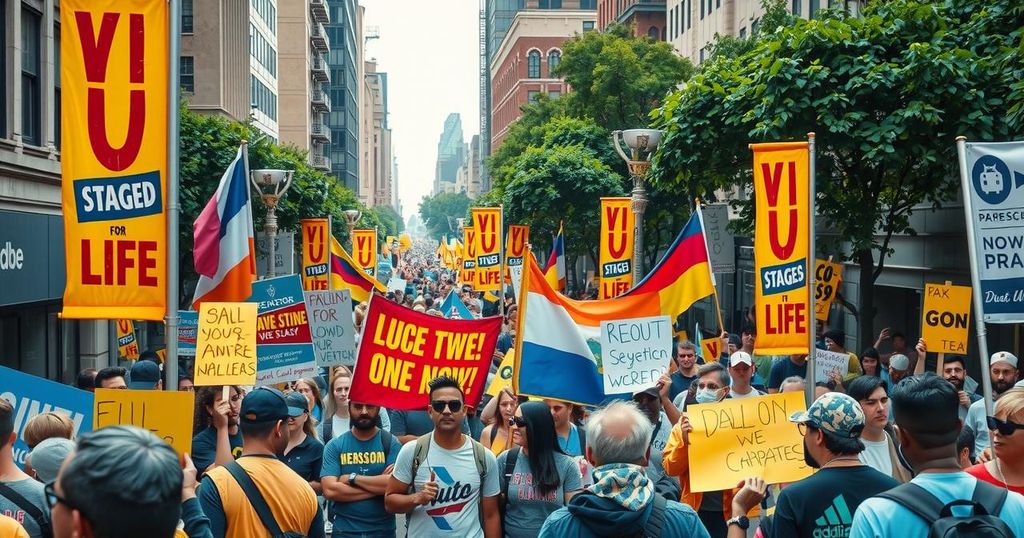Argentina’s CGT Announces Nationwide Strike Amid Worker Discontent

Argentina’s General Labor Confederation (CGT) has announced a nationwide strike for April 10, 2024, against President Javier Milei’s government, following a demonstration on April 9. Workers demand the reopening of collective wage negotiations due to stagnant salaries amidst rising inflation, alongside other social calls. Tensions within the CGT are evident, and government efforts to negotiate the strike are unlikely to succeed, reflecting broader labor discontent.
The General Labor Confederation (CGT) of Argentina has declared a nationwide strike scheduled for April 10, targeting the government of President Javier Milei. This strike follows a demonstration on April 9, and marks the third labor action against his administration after previous stoppages on January 24 and May 9, 2024.
On April 9, workers will march to Congress while retirees demand improved income and social benefits. Other planned actions include participation in the Day of Memory march on March 24 and a significant event on Workers’ Day on May 1.
The CGT’s demands center on reopening collective wage negotiations—referred to as “paritarias”—as current salaries have not kept pace with inflation. They are also calling for bonuses for retirees, the resumption of public works, and an end to police repression against social protests.
Héctor Daer, the Secretary-General of CGT, stated that the strike is non-negotiable, highlighting the discontent among workers regarding wage declines and economic pressures. Internal CGT dynamics are complex, with both moderate leaders and more radical factions advocating for this strike.
Daer emphasized, “The fall in wages as from the end of last year caused the paritarias to fall below inflation.” He insisted, “This strike will not be lifted.” Support for the strike includes the Lorry Drivers Union and transport unions, while the participation of the UTA union remains uncertain, raising concerns about reduced subway services in Buenos Aires.
In response, Cabinet Chief Guillermo Francos is attempting to negotiate with CGT leaders to avoid the strike, although the likelihood of success is low. This strike is perceived as a political movement spurred by recent protests and allegations of repression, including an incident on March 12 where photojournalist Pablo Grillo was injured.
Presidential spokesman Manuel Adorni criticized the strike, suggesting it serves the interests of union leaders rather than addressing genuine worker grievances. He remarked, “These strikes are to defend their own interests [of the union leaders]… They want to do it to damage the Government.”
In conclusion, the upcoming nationwide strike planned by Argentina’s CGT is a response to ongoing economic challenges and discontent among workers concerning stagnant wages and poor social conditions. Despite attempts by the government to negotiate with union leaders, the strike signifies a strong political statement against the current administration. The situation continues to evolve, reflecting significant labor unrest within the country.
Original Source: en.mercopress.com







